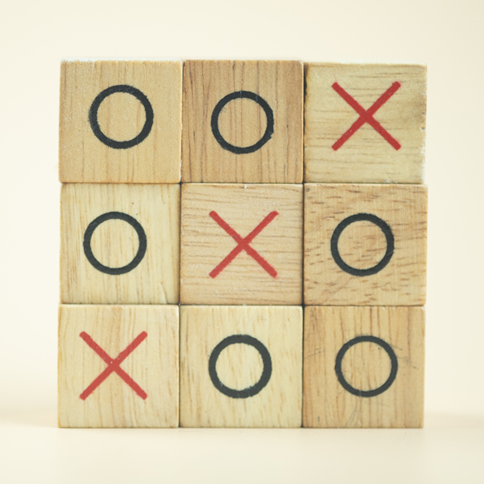These activities are part of our Primary collections, which are problems grouped by topic.
Roman Numerals
Can you find some examples when the number of Roman numerals is fewer than the number of Arabic numerals for the same number?
The Deca Tree
Find out what a Deca Tree is and then work out how many leaves there will be after the woodcutter has cut off a trunk, a branch, a twig and a leaf.
Representing Numbers
Find as many different ways of representing this number of dots as you can.
The Thousands Game
Each child in Class 3 took four numbers out of the bag. Who had made the highest even number?
Number Differences
Place the numbers from 1 to 9 in the squares below so that the difference between joined squares is odd. How many different ways can you do this?
Less Is More
Use your knowledge of place value to try to win this game. How will you maximise your score?
Swimming Pool
In this problem, we're investigating the number of steps we would climb up or down to get out of or into the swimming pool. How could you number the steps below the water?

First Connect Three
Add or subtract the two numbers on the spinners and try to complete a row of three. Are there some numbers that are good to aim for?
More Tug of War
In this game, you can add, subtract, multiply or divide the numbers on the dice. Which will you do so that you get to the end of the number line first?
Sea Level
What numbers would you put on this number line as it goes under the sea level?
Magic Vs
Can you put the numbers 1-5 in the V shape so that both 'arms' have the same total?

Four-Digit Targets
You have two sets of the digits 0-9. Can you arrange these in the five boxes to make four-digit numbers as close to the target numbers as possible?
Coded Hundred Square
This 100 square jigsaw is written in code. It starts with 1 and ends with 100. Can you build it up?
Nice or Nasty
There are nasty versions of this dice game but we'll start with the nice ones...
Round the Four Dice
This activity involves rounding four-digit numbers to the nearest thousand.
Round the Three Dice
What happens when you round these three-digit numbers to the nearest 100?
Reasoned Rounding
Four strategy dice games to consolidate pupils' understanding of rounding.
The Remainders Game
Play this game and see if you can figure out the computer's chosen number.
Count Me In
How do you know whether you will reach these numbers when you count in steps of six from zero?
Which Scripts?
There are six numbers written in five different scripts. Can you sort out which is which?
Number Lines in Disguise
Some of the numbers have fallen off Becky's number line. Can you figure out what they were?
Square Subtraction
Look at what happens when you take a number, square it and subtract your answer. What kind of number do you get? Can you prove it?
